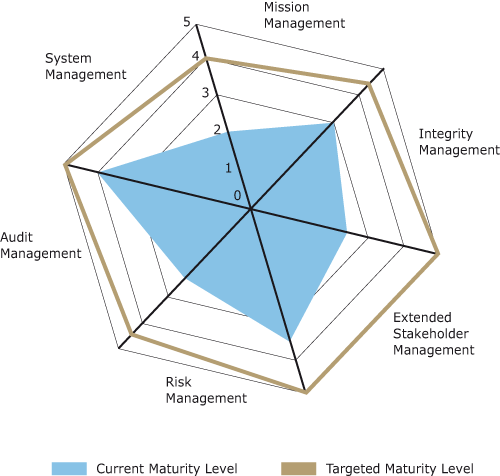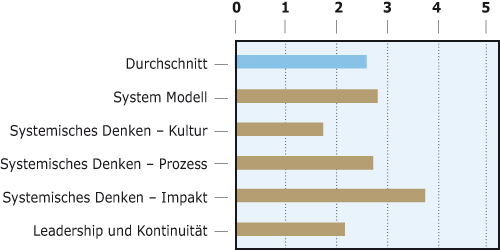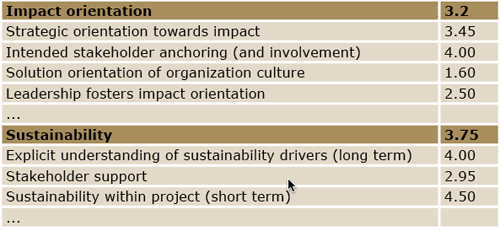Assessment Methodology
Our methodology is built so that customers can benefit quickly from our expertise. Our assessments and benchmarks allow your project, your program or the whole organization to benefit from best practice cases and to achieve positive impacts in no time.
Together with our partner organizations of social and organizational researchers of the Swiss Federal Institute of Technology Zurich (ETH), the University of Hamburg, the University of Applied Sciences Lucerne, the company Valuequest, a specialist for survey techniques and the company Fabware, a specialist in processes and IT, we have created a proprietary, participative assessment methodology named CoopeRATEr®. The methodology is characterized by:
Deep and systemic analysis
- The analysis is built on 90 indicators, in 6 modules and sub-modules, with 200 open and closed questions.
- It is a systemic and integrated approach to deeply understand the issues of impact and sustainability.
- Reliable results can be obtained in no time, through a questioning technique that works with different levels or hierarchy and control questions.

–
Coherent indicators and benchmarks
- Quality is measurable and comparable due to the utilisation of a scale from 0 to 5.
- Benchmarking with the best: benchmarks within the organisation or in comparison to our benchmark community.
- Improvements over time can be measured.
- The methodology is based on a data base and latest information technology
–

–
Target and result oriented
- What counts are the development results of our partner organizations
- The Governance Model and the assessment methodology allow clear statements concerning impact orientation and sustainability.
- If requested, specific aspects can be pursued further (knowledge management, culture of learning, etc.)
–

–
Realisable and proactive recommendations with clear accountabilities
A proactive approach of for example questions concerning impacts and sustainability, not post-mortem, but providing management information on time.
The methodology functions as a support and an empowerment tool, which should ideally be utilised through the whole life-time of the organisation or a project.
Provides answers for management functions and accountabilities and provides a reflective and ethical involvement of stakeholders. Governance in this respect is strategic and constructive in nature.

–
Fosters deep reflection
- The methodology is not dictating actions, but is rather stimulating reflection on all hierarchical levels.
- It is a mix of self reflection and external analysis through data triangulation, standardized and scientific questions and feedback loops.
- The assessment process itself is a possibility to reflect and learn.
 info@aidgovernance.org
info@aidgovernance.org +41 76 477 00 59
+41 76 477 00 59



